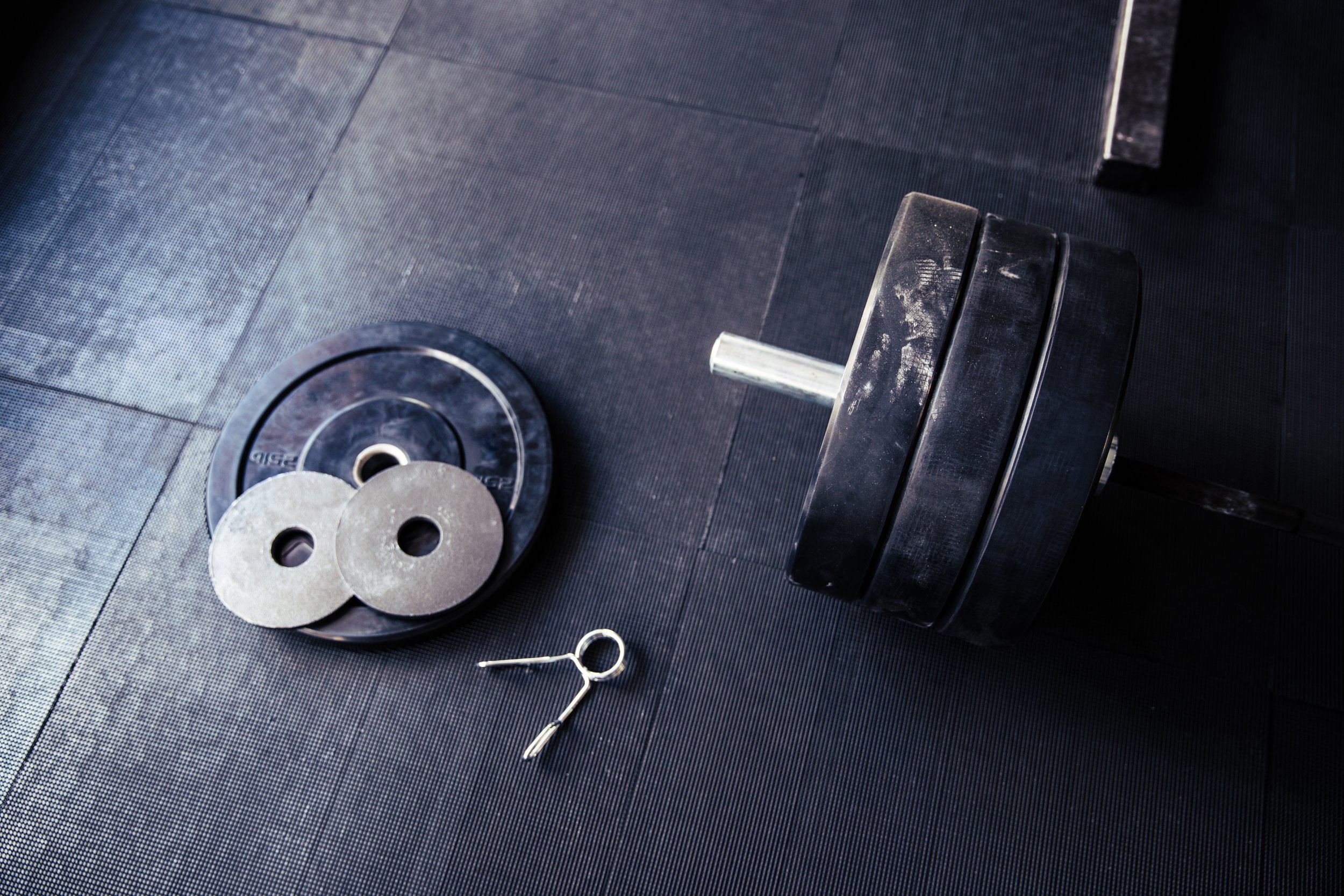Fitness For Mental Health
Takeaway Points:
Fitness is one of the most powerful tools in your toolkit for managing mental health - when used properly.
Here, I examine some of the science behind the use of fitness for managing mental health, as well as some of the under-discussed benefits.
I’ve struggled to write something meaningful on this topic for a long time, for a few different reasons. In part, because I’ve already written quite a lot on the topic of my own struggle with depression and anxiety, and how fitness helped me to overcome an intense desire to kill myself, and in part because it feels trite and silly to talk about, as if I am cheapening my very real past struggle, and the struggles of everyone who continues to grapple with these issues to this day. It feels hard to make “content” and mine your own life’s lessons for another silly little blog post.
However, inspired by the recent Stronger By Science podcast on the topic of fitness for mental health, I felt it was time to give it another go.
If you’re interested in learning the science behind why fitness is so powerful for mental health, I’d recommend listening to that podcast - it’s super long, but it’s also very informative, and digs much deeper into the research than I can do justice here.
To summarize, we KNOW that fitness has a strong positive effect on mental health. Any kind of training will help, but generally a combination of resistance training and cardio training (like we’d generally recommend anyway for overall fitness and long term health) will get you the most benefit. Additionally, mental health issues themselves often make it harder to start a consistent exercise habit, which creates a negative feedback loop that often makes it hard to really start seeing the benefits.
I myself am a personal success story. At the age of 16, struggling with depression, anxiety, and suicidal ideation, I took up weight training on the advice of a therapist and this was the catalyst that triggered a chain reaction that ultimately led to recovery.
Today, I feel happy and powerful in my body, my life is as good as it’s ever been, and I created an entire business around helping other people to engage with fitness in the same way that I did. I’ve helped 1000’s of clients in over a decade of training and coaching, and I’m proud of what I’ve been able to physically accomplish as well.
Here are some of the biggest mental health benefits from exercise that I personally think are under-discussed.
Self-Efficacy
Self-efficacy is a term that I saw thrown around a lot in my personal training certification manuals, which I had never really considered before. Put short, it means that you feel happy with your body, and you feel like your body is able to generally do the things that you want it to do.
Somebody with a high self-efficacy will generally feel confident that they can handle most of the stuff life throws at them, and won’t be anxious about the idea of needing to put a heavy object on a high shelf without hurting themselves, for example.
Somebody with a low self-efficacy will feel uncertain about their ability to handle unexpected tasks, and may be avoidant about specific kinds of activities or tasks as a result.
Easily, I would say that the added sense of self-efficacy that I’ve gotten from training has probably been one of the biggest impacts in terms of changing my actual life. I feel bigger and stronger, people positively comment on my body in social settings, I’m always able to help move heavy furniture, I rarely get injured or get sick, and so on. This gives you a real, positive, feeling of being healthy, and it’s almost a kind of superpower.
When I was younger, I remember very acutely how afraid I was to do things. A part of my personal issues with anxiety revolve around social situations, and feeling confident in my body allowed me the ability to start actually engaging in social situations without feeling like I should shrink and hide away. This led to a positive feedback loop in which, over time, more experience being confident led to greater belief in my own ability to be confident, and I now only struggle in some very specific, limited situations.
I also can’t emphasize enough how many clients I work with get excited about the same - not the strength or the muscle mass that you build, but the fact that you’re regularly training makes you feel proud and confident in your body, and this adds up over time as you get stronger and stronger. Clients can see this change in as little as a week or two, as some of them can confirm - a recent client just started with me, and within two weeks, she was already feeling excited about her workouts and looked forward to them in part because just the simple ability to stick to workouts and improve over time felt so empowering.
Fitness is self-empowerment, when it’s done with the right focus.
Structure and Form
A reality that’s often hard to grapple with, is that depression is frequently not something that we can just “fix” with a pill or an exercise habit. This is because it’s often caused by very real external factors that are hard to immediately fix - social conditions, major stressors and geopolitical events, economic pressures, and so on. Often, the reason that depression is so persistent is because it’s rooted in concrete external realities that can’t simply be ignored or willpower-ed away.
But from personal experience, one thing that fitness gave me, was something to structure my time and goals around. As a teenager, I was depressed, much of my self-esteem was reliant on the opinions of my peers, and I was never terribly popular or good at interacting with people.
Fitness gave me something else to restructure my mindset around. I started to care more about hitting new numbers in the gym, moving more weights, seeing a bit more muscle mass.
Fitness gave structure to my week - instead of going through an endless repetition of school and other obligations I wasn’t too excited about, I now had to get better about paying attention to my week in order to appropriately structure workouts to achieve results. This structure helped me to develop an ability to think and plan ahead for my future, and this helped me to break out of being stuck in the endless present, where I was unhappy, and instead look forward to a future where I could be better and imagine myself as happy.
I can speak to many personal memories when I was depressed as hell, didn’t want to do anything, but forced myself to go to the gym - and seeing at least the ability to keep making small gains in the gym, made me feel like life was worth living again, even if in this very small and ineffectual way.
During my worst breakup, I dove into extreme training (typically, 2x/day without break for a few months) as a way of coping, and the end result was that I got to set some new PR’s and burn off a lot of that angry energy.
Final Thoughts
This is far from a comprehensive accounting of the topic of fitness for mental health, and I have doubts that it will be a particular viral or popular article, but hopefully it’s meaningful to someone who reads it. I do genuinely believe that fitness is one of the most meaningful pursuits one can follow if they need to manage mental health issues and want to improve their lives - and I can say that from a combination of objective research and personal experience.
It doesn’t matter what kind of training you do - you just need to do it, and do it consistently, and the potential benefits are massive.
About Adam Fisher
Adam is an experienced fitness coach and blogger who's been blogging and coaching since 2012, and lifting since 2006. He's written for numerous major health publications, including Personal Trainer Development Center, T-Nation, Bodybuilding.com, Fitocracy, and Juggernaut Training Systems.
During that time he has coached thousands of individuals of all levels of fitness, including competitive powerlifters and older exercisers regaining the strength to walk up a flight of stairs. His own training revolves around bodybuilding and powerlifting, in which he’s competed.
Adam writes about fitness, health, science, philosophy, personal finance, self-improvement, productivity, the good life, and everything else that interests him. When he's not writing or lifting, he's usually hanging out with his cats or feeding his video game addiction.
Follow Adam on Facebook or Twitter, or subscribe to our mailing list, if you liked this post and want to say hello!
Enjoy this post? Share the gains!
Ready to be your best self? Check out the Better book series, or download the sample chapters by signing up for our mailing list. Signing up for the mailing list also gets you two free exercise programs: GAINS, a well-rounded program for beginners, and Deadlift Every Day, an elite program for maximizing your strength with high frequency deadlifting.
Interested in coaching to maximize your results? Inquire here.
Some of the links in this post may be affiliate links. For more info, check out my affiliate disclosure.







